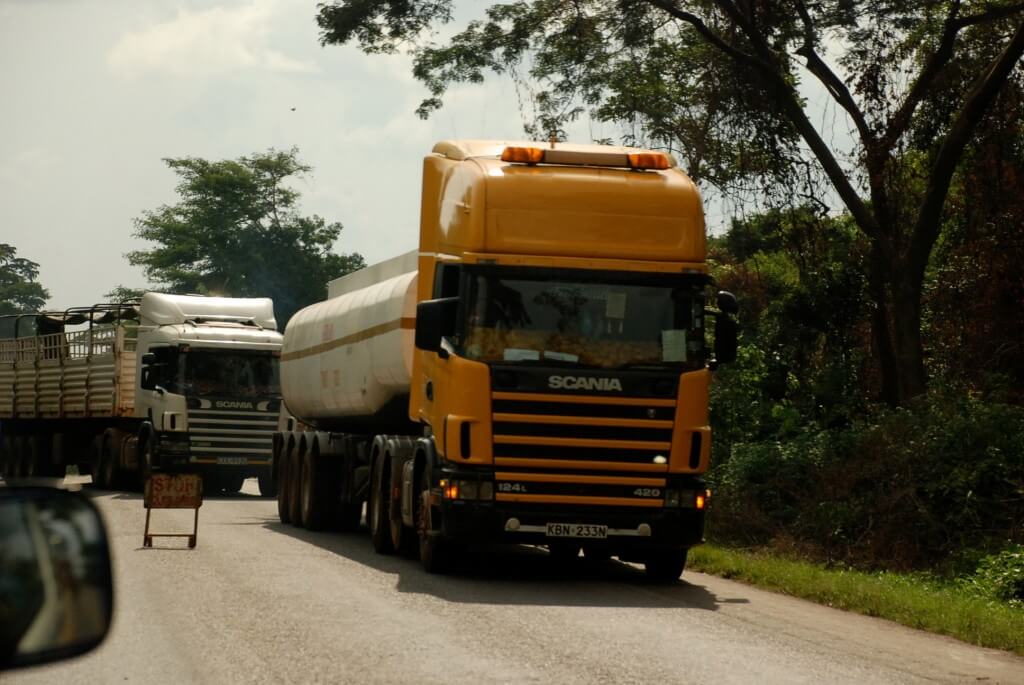Truckers yearn for it. Some are even prepared to break the rules to get it. But in Uganda actually obeying the rules and signing up for a computerised system has put truckers where they and their cargo want to be – in the fast lane.
“Although many business people in Uganda still believe that money is made by cutting corners and doing the wrong thing, you can now make good money by doing the right thing, which is more sustainable,” says Jennifer Mwijukye, founder and MD of Unifreight, a cargo handling company.
She is talking about the pilot launch in Uganda of the Authorised Economic Operators (AEO) scheme, which gives approved companies preferential treatment to sail through the Ugandan border all the way to the importers’ premises without being stopped anywhere for Customs checks.
The programme, fully funded by Trademark East Africa (TMA), allows authorized companies like Jennifer’s to operate smoothly by clearing merchandise electronically and calculating taxes due, which can be paid at the click of a mouse.
“I can tell you today that I am saving at least $300 per container in processing costs, to say nothing of the handling time which has drastically reduced,” she says. Clearing at least two containers a week, she now saves $31,200 a year (78 million Uganda shillings).
Time is money, not just for freight companies but also for East Africa’s 140 million consumers who have to help cover the cost of one of the most expensive transport systems in the world. Transport costs around 40% of the retail price of goods.
Unlike other importers, Unifreight cargo is not subject to examination at all by Customs. Jennifer also manages her bonded warehouses without the presence of any customs officer. So her goods breeze through borders and the airport to her warehouses, directly saving her millions and precious time.
Dicksons Kateshumbwa, the Uganda Revenue Authority’s (URA’s) assistant commissioner for Customs Audit, explains that the speed at which, foreign trade is growing has called for innovations to handle the increasing volumes not only in Uganda and East Africa but the whole world.
“Malaba border post on the Uganda – Kenya border now handles at least 300 containers a day up from 32 containers 20 years ago,” “The more business operators we give AEO classification, the faster the goods get cleared.”
He explains that security concerns worldwide have also made it imperative that cargo moving between countries is safe, which has made it necessary for countries to come together under the World Customs Organization to streamline the AEO accreditation processes.
The whole East African Community is taking the scheme forward as a bloc to secure reciprocal recognition protocols for the AEOs with different countries of the world.

The AEO programme hopes to increase the number of Ugandan companies on the scheme from eight to 20 over the next 18 months. The 20 companies will be saving some $624,000 (1.5 billion Uganda shillings) per year.
This is essentially the cost and time importers incur for waiting at border posts, loading and offloading costs, handling charges by clearing and forwarding agents, allowances for truck drivers, to mention but a few.
Uganda is far ahead of the other four East African Community countries in this regard with Trademark already having set up headquarters capacity in the Customs department to train and enable customs staff to handle this innovation.
Kateshumbwa says that for a company to get AEO status it must be involved in international trade, have a compliance history of at least three years, have minimum capacity to use URA’s (digital) systems and have a healthy financial status.
The owners of another pioneer company in the scheme, Nice House of Plastics, are enthusiastic. Betty Kiguli is the procurement coordinator of this family business which makes plastic goods, car batteries, imports a lot of raw materials and exports many finished products to the region.
“Because URA recognizes our long history of tax compliance and strong internal controls we are allowed to clear our goods without the services of clearing agents and manage our warehouses without customs deploying control,” she says.
“The amount of time and money we now save is just unbelievable, all this, because we embrace transparency, maintain internal controls and our books of account, are updated and available for inspection.”















